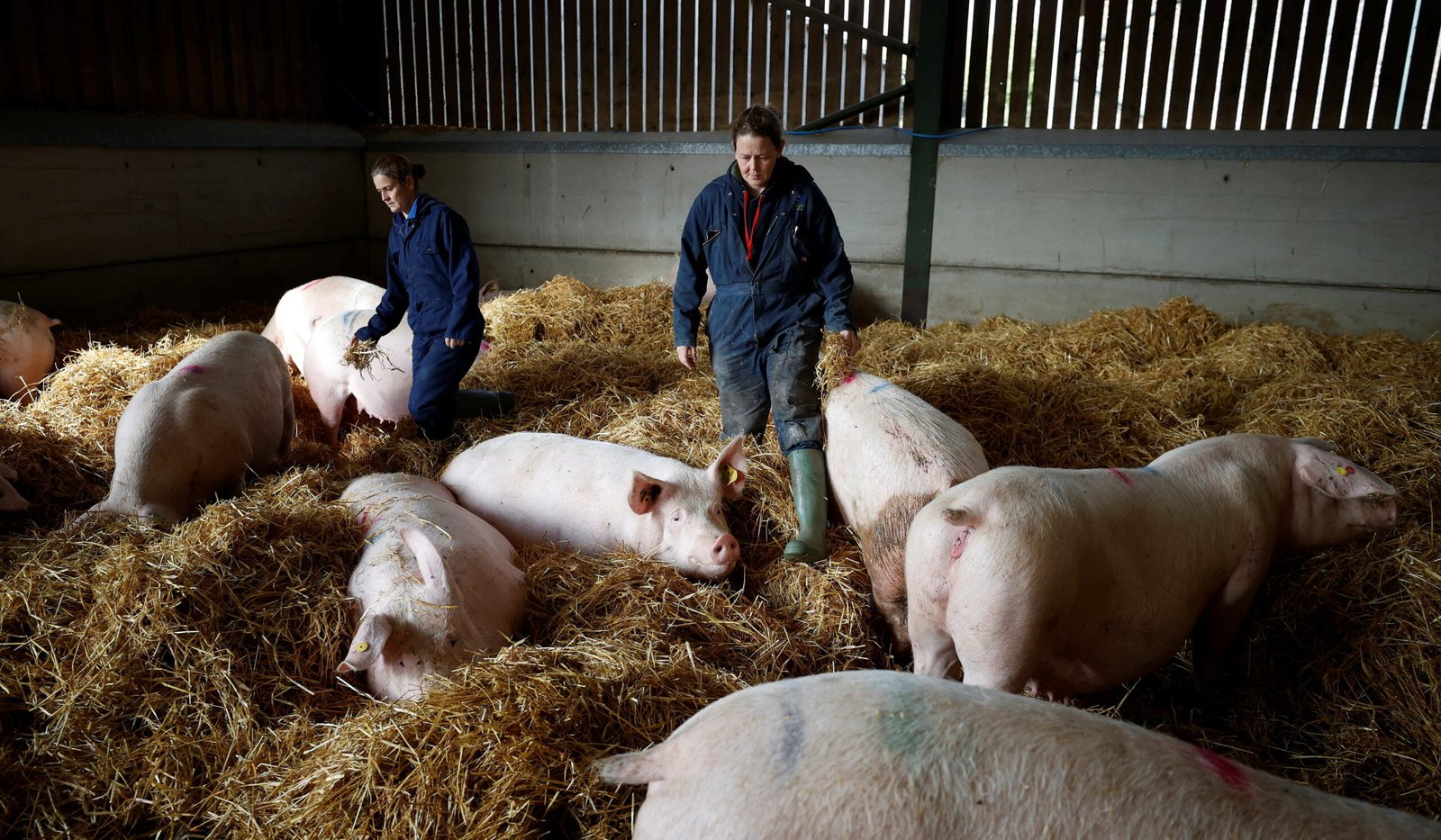
What Is Agribusiness? A Guide to the Agriculture Industry.
Agribusiness is an important part of the economic market with job opportunities involving important commodities like crops, livestock and biofuels. If you’re considering a career in agriculture, knowing what agribusiness is and how each of its components relates to another can help you in your job search. Learning more about what makes up agribusiness can help you understand the food production system and all the related businesses that comprise the agriculture industry.
In this article, we discuss the meaning of agribusiness, list several different types of agribusinesses and discuss the factors that impact this economic sector.
Key takeaways:
Agribusiness is a term used to describe all the enterprises involved in producing food and cultivated products for consumer use.
Some common examples of agribusinesses include companies that produce fertilizer and pesticides, farming equipment manufacturers and food distribution companies.
Agribusinesses face unpredictable factors such as changing environmental conditions and consumer supply and demand.
What is agribusiness?
Agribusiness refers to the industry of agricultural products and services involved in growing, processing and distributing food. Agribusiness includes small and large-scale farming operations, farming equipment such as tractors and harvesters, growth aids like fertilizer, food processing plants and distribution chains involved in shipping, storing and selling food.
The agribusiness industry also produces materials grown for non-consumable products. One way to remember the key elements of agribusiness is through the four “F’s”:
Food: The main component of agribusiness includes creating products for consumption such as meat, vegetables, fruit, grains and dairy.
Fiber: Materials produced by plants or animals help create other products like textiles.
Forest: Agribusiness uses natural elements like forests to make consumer products.
Fuel: Farms produce energy such as biofuel to serve as renewable fuel sources.
Many colleges and universities offer programs for agribusiness. Studies in this field focus on the science and economics of agriculture management. Those graduating with a specialization in agribusiness typically find careers in farm operations, agricultural finance and merchandising.
Why is agribusiness important?
Agribusiness supports the growth of the agricultural industry, which leads to economic growth across countries. Since countries can export their products, this allows for an increase in revenue sources.
Below are some other benefits of agribusiness:
Enhances agriculture productivity: Agribusiness creates a more productive and efficient operation through the use of new food production technologies and improved growing methods.
Improves systems of food security: By developing innovative ways for growing crops, agribusiness components can lead to greater levels of food security for a community.
Creates sustainable food production: Agribusiness often involves using sustainable practices like crop rotation to produce food.
Lowers food prices for consumers: Agribusiness can increase crop yields through effective growing and distribution methods, often reducing food costs for consumers.
Reduces poverty: Through the reduction of food prices and the creation of jobs, agribusiness can help reduce poverty, leading to a higher quality of life for a community or country.
Agribusiness examples
There are many components that make up the agribusiness industry, starting with the production of crops and leading up to the processing and selling of agricultural goods. Here are some of the most common types of agribusiness:
Agrichemical and seed manufacturers
During the agricultural process, farmers may use agrichemicals to help with the growth of crops. These include pesticides, fungicides, fertilizers and growth chemicals. Other types of companies sell seeds to farmers so they can plant a variety of crops.
Agritourism companies
Some commercial farms and ranches invite visitors to their enterprises to supplement income. Agritourism can include farmer’s markets, corn mazes, petting farms and farm tours. These activities help educate the community about farming operations and provide additional revenue.
Animal feed manufacturers
Animal feed manufacturers source the proper ingredients to create a nutritious formula for farm animals. Companies producing animal feed sell their products to farms and other related businesses to give to their livestock. Animal feed makers work to produce food that promotes healthy growth in animals.
Biofuel makers
Another type of agribusiness includes biofuel makers. Biofuel companies produce energy from biomass such as plant or animal waste. Since waste is reoccurring, it is considered a renewable energy option and used as an alternative to diesel fuel.
Breeding companies
These specialists focus on raising animals for consumption and breeding animals to increase the number available. They work with farmers to arrange the purchase of new livestock. Breeding companies may also breed plant species to grow genetically modified seeds or crops.
Farm machinery producers
Another segment of agribusiness is equipment and machinery production. These producers create types of farm machinery such as hand tools and tractors for farmers to use. They look for ways to incorporate new technology to assist crop production and make farming more efficient for farmers.
Farmers’ cooperatives
Cooperatives make up a network of farmers conducting business as a unit, sharing resources to reduce costs and creating access to goods and services previously unavailable to them.
Also known as a farmers’ co-op, these agreements help enhance their economic power by increasing prices for products marketed and lowering the costs of purchased products. This allows farmers to reduce their expenses and grow their operations.
Food processing companies
Food processing companies turn agricultural products into food. This includes many different methods, such as canning, fermentation, freezing and pasteurization. Once the companies process the food, they send the final products to stores and retailers for sale.
Factors that affect agribusiness
Since agribusiness is a type of commerce, many market forces such as supply and demand and the state of the economy affect the industry. Here are some of the main factors affecting agribusiness:
Changes in consumer tastes
As food trends change, farms make adjustments to grow the new demanded product. For instance, if red meat becomes less popular in an area, farmers may change their focus to producing more vegetables to accommodate different eating styles like vegetarianism.
Crop production
Farmers produce various vegetables and fruits to support the food system. They use practices such as crop rotation to produce more crops using less land and fewer resources. Whether a crop grows effectively impacts the entire chain of food distribution.
Land availability
Because much of agribusiness depends on the crops produced, the amount of land available is an important factor. If land becomes commercialized, it decreases the amount available for farming. As a result, areas with more land tend to allow for more effective agribusiness since they can produce more goods.
Technology use
Agribusiness sectors are beginning to implement new technologies, like drones, to perform tasks such as conducting field analyses and planting and monitoring crops. Those in the agribusiness industry often look to manufacture machinery that can perform more efficiently and on a large scale. Agricultural engineers work to create farming equipment and tools that make growing more effective.
Environmental changes
Farms are now finding practices to adapt to the changing weather patterns to ensure they continue growing crops effectively. This includes practices such as changing crop selection and improving soil quality. Sustainable growing practices are also a focus for many agribusinesses as concerns about climate change arise.










